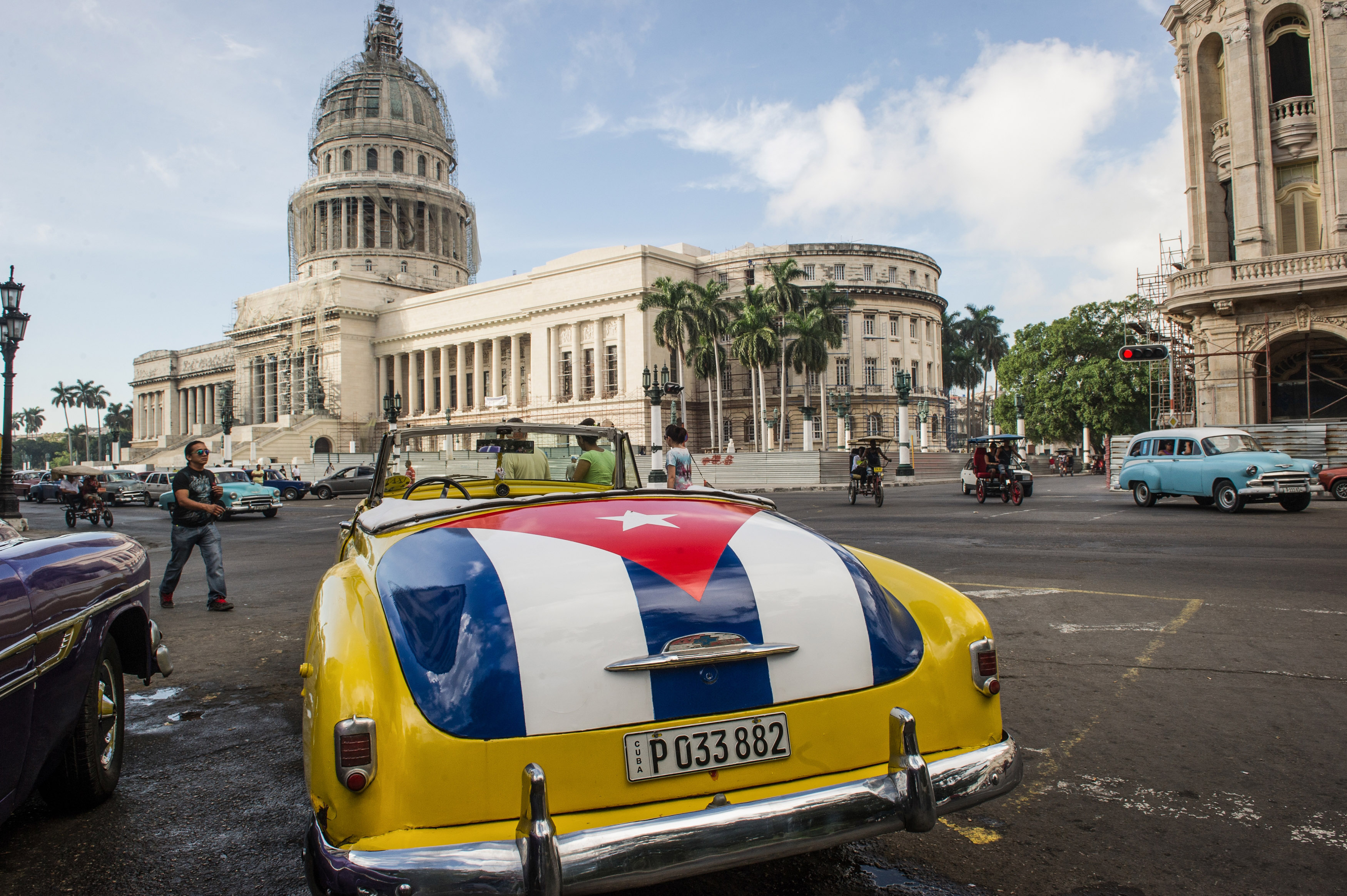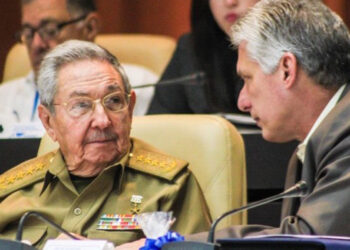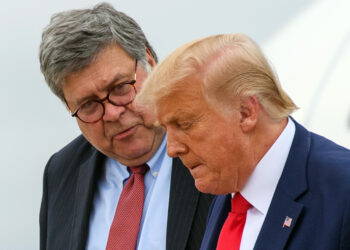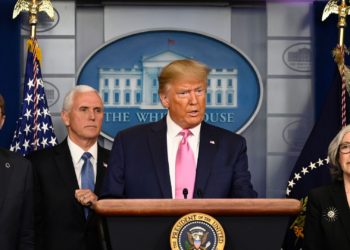In a political move that is unprecedented in recent history, U.S. President Donald Trump’s Administration is considering tightening its grip on the existing embargo against Cuba by allowing for lawsuits over nationalized Cuban land.
The Trump administration is considering breaking a 23-year precedent of suspending Title III of the Helms-Burton Act, a key clause that would allow for U.S. companies and Cuban Americans to sue the Cuban government for land that was nationalized in 1959 following the Cuban revolution that brought Fidel Castro to power.
Since the Presidency of Bill Clinton, all U.S. presidents have suspended the clause due to the negative diplomatic implications. Enacting it would further degrade the Cuban economy by discouraging investment and could create conflict with U.S. allies.
However, the policy could gain favor with Florida voters ahead of the 2020 election while further disrupting U.S.-Cuban relations.
U.S. Secretary of State Mike Pompeo said in a recent comment that the administration is conducting a review of Title III,
“In light of the national interests of the United State and efforts to expedite a transition to democracy in Cuba and include factors such as the Cuban regime’s brutal oppression of human rights and fundamental freedoms.”
Billions at Stake
Typically the Act is suspended on a 6-month basis, but according to a report from the Washington Post, it is expected the Trump Administration will only suspend Title III for a 45 day period, after which some lawsuits for nationalized Cuban property would be permitted.
Cuban and American officials first sat down to discuss property in 2015, a time in which U.S. and Cuban relations were improving amidst Obama-era policies aimed at expediting reform and resolving tensions.
The New York Times reported in 2015 that the U.S. Department of Justice’s Foreign Settlement Claims Commission arrived at $1.9 billion in 5,913 certified American claims, which are estimated to be worth $8 billion with interest.
The State Department also laid out the 10 state and federal court judgments American courts have levied against the Cuban government, totaling around $2 billion.
The State Department’s comment specifically targeted Cuban companies as well as other foreign companies operating in Cuba, some of which have been profiting on nationalized land.
National security adviser John Bolton: "Some people call the country now 'Cuba-zuela' reflecting the grip that Cuba's military and security forces have on the Maduro regime. We think that's a strategic significant threat to the United States" https://t.co/y4X8d2RLmD pic.twitter.com/JMxWkOG1BS
— ABC News Politics (@ABCPolitics) January 28, 2019
The Havana Harbor that docks cruise ships, for example, was owned by the family of U.S. resident Mikael Behn, who told Tampa Bay Times,
“This is great news. The government is finally taking notice of the crimes being committed.”
This past June, the Tampa Bay Times reported that the Foreign Claims Settlement Commission established that Behn is the rightful owner of Havana Harbor.
‘Political Blackmail’
William LeoGrande, Associate Vice Provost for Academic Affairs and Professor of Government at American University, told The Globe Post that the excitement at the opportunity for “justice” is likely misguided, arguing that Title III does not at all provide for the return of property, as Behn may hope.
“The real purpose of allowing Title III to go into effect is to deter U.S. and foreign business from investing in Cuba for fear of being dragged into U.S. court by a Cuban American who owned property prior to 1959,” he said.
LeoGrande also said there’s no chance the Cuban government would cooperate with this law, so while Cuban Americans may be given the opportunity to sue, there is realistically no possibility of compensation or the return of land rights.
“The Trump Administration’s motivation is to shore up its Cuban American base in advance of the 2020 election by creating the illusion that this will somehow allow them to get some compensation for lost property,” he said.
The real effect of Title III would be the scaring off of foreign investors to Cuba, further degrading its economy and making lives more difficult for the average Cuban citizen.
Cuban Foreign Minister Bruno Rodriguez described the Pompeo announcement as “political blackmail and irresponsible hostility aimed at hardening the blockade on Cuba.”
There is also great potential for diplomatic conflict with many of the United States allies, which have companies operating on Cuban soil.
“Canada, Mexico, and the [United Kingdom] have already passed laws prohibiting their companies from cooperating with Title III,” LeoGrande said. “In 1996 the E.U. entered a complaint in the [World Trade Organization] over it, a case that was suspended when Clinton suspended Title III. The E.U. is likely to reactive that complaint if Title III goes into effect.”
Policy Shift
These policy developments are in line with the Trump Administration’s overall diplomatic relationship with Cuba, which has generally strayed away from Obama-era policies and taken a hard stance against the nation, frequently citing the necessity to put pressure to bring about regime change.
President Barack Obama sought to normalize relations with Cuba, opening up travel as well as U.S. investment and trade with Cuba. He was also the first U.S. President to visit the nation since 1928.
The Trump Administration’s more aggressive approach is largely favored by Florida Republicans, many of whom have either supported or directly called for additional hawkish policies towards Latin America.
Despite the Administration’s opposition, time to pass my bipartisan bill to lift the embargo and boost U.S. exports – good for U.S. businesses/economy, good for Cuban people.https://t.co/H1s5InYXNO
— Amy Klobuchar (@amyklobuchar) January 26, 2019
On Tuesday Republican Gov. Ron DeSantis, along with Republican Senators Rick Scott and Marco Rubio, met with President Trump where they discussed America’s recently announced support for the ouster of Venezuelan President Nicolás Maduro.
Desantis also urged Trump to put additional pressure on Cuba.
“Cuba’s the cancer leading to a lot of the problems we see in Latin America,” he said.
This seems to be a growing attitude amongst U.S. administration officials, with a recent report from the Miami Herald detailing the Trump Administration’s consideration of returning Cuba to the list of countries that sponsor terrorism.
This is a result of Cuba’s recent governmental and military support of Venezuelan President Maduro. The United States pledged support to opposition leader Juan Guaido who proclaimed himself interim president this past Wednesday. Obama had removed Cuba from the list in 2015.
LeoGrande argued that the overall political pressure enforced by the Trump administration has proven not to be an effective path toward regime change, as officials have claimed.
“This is nonsense,” LeoGrande said. “Inflicting damage on the Cuban economy by deterring foreign investment will simply make life harder for ordinary Cubans. It will not bring about regime change in Cuba, any more than the US embargo, now over half a century old, has brought about democracy.”
More on the Subject
The United States on Wednesday recognized Venezuelan opposition leader JuanGuaido as the interim president, urging the overthrow of leftist President Nicolas Maduro following tainted elections and a spiraling economic crisis.
In a coordinated bid to oust Maduro, Guaido declared himself acting president during a mass demonstration and within minutes was recognized by President Donald Trumpas well as the Organization of American States.
Maduro has repeatedly blamed the nation’s woes on the United States, which he accuses of plotting a coup in a continuation of the U.S. history of meddling in Latin America.
Under Trump, the U.S. has ramped up sanctions against the country that have contributed to its economic crisis.
Trump Recognizes Venezuela Opposition Leader as ‘Interim President’






















